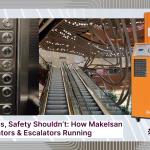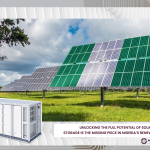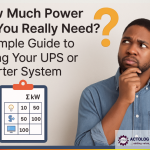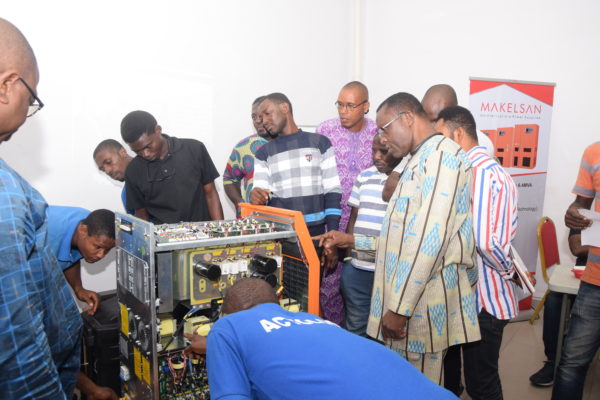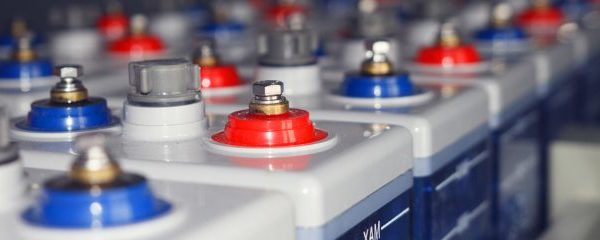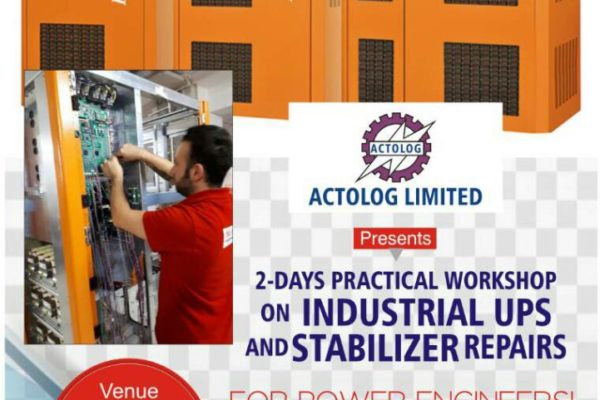Power outages can be frustrating and costly, whether at home or in business. If you’re tired of dealing with sudden blackouts, you need a reliable backup power solution. But with so many options—solar systems, inverters, and uninterruptible power supplies (UPS)—how do you know which one is right for you? Let’s break it down in simple terms so you can make an informed decision.
Understanding Your Options
1. Solar Power Systems – The Green Energy Champion
Solar energy systems convert sunlight into electricity, giving you a renewable and cost-effective way to power your home or business. Solar power is an excellent option for those looking to invest in long-term energy solutions while reducing their reliance on the national grid.
Why Choose Solar?
✅ Save Money Over Time: Although the initial cost is high, solar power drastically reduces electricity bills, making it a cost-effective solution in the long run.
✅ Eco-Friendly: Solar energy is 100% renewable and helps reduce greenhouse gas emissions, making it an environmentally friendly choice.
✅ Energy Independence: Once installed, a solar system provides energy without relying on the grid, ensuring uninterrupted power.
✅ Scalability: You can start with a small system and expand as needed, making solar power adaptable to different energy needs.
Challenges of Solar:
❌ High Initial Cost: Solar panels, inverters, and batteries require a significant upfront investment, but various financing options and incentives can help offset costs.
❌ Weather Dependent: Solar panels generate less power on cloudy or rainy days, though battery storage can mitigate this issue.
❌ Space Requirement: Solar panels need sufficient roof or ground space for installation, which may be a constraint in urban settings.
2. Inverter Systems – The Affordable Power Saver
Inverters store electricity in batteries and convert it into usable power during outages. They are a practical and cost-effective solution for individuals and businesses looking for a reliable backup power option.
Why Choose an Inverter?
✅ Budget-Friendly: Compared to solar power, inverters require a lower initial investment, making them accessible for more users.
✅ Silent Operation: Unlike generators, inverters operate quietly, making them suitable for residential and office use.
✅ Customizable: Users can increase backup capacity by adding more batteries, allowing flexibility based on power needs.
✅ Low Maintenance: Inverters require minimal maintenance compared to fuel-powered generators.
Challenges of Inverters:
❌ Requires Reliable Charging Source: Inverters must be charged using grid electricity or solar panels, meaning prolonged outages could limit their effectiveness.
❌ Limited Backup Duration: The duration of power backup depends on the battery capacity, and large setups can be costly.
❌ Not a Power Generator: Unlike solar, an inverter does not generate power; it only stores and converts it.
3. Uninterruptible Power Supply (UPS) – The Instant Protector
A UPS acts as an emergency backup, instantly supplying power when an outage occurs. It is ideal for protecting sensitive equipment such as computers, servers, and medical devices from unexpected power cuts.
Why Choose a UPS?
✅ Instant Backup: A UPS provides immediate power when an outage occurs, preventing data loss and equipment damage.
✅ Protects Electronics: It safeguards sensitive devices from power surges and fluctuations.
✅ Compact & Easy to Use: Unlike inverters or solar systems, a UPS is a plug-and-play device requiring no complex installation.
✅ Ideal for Critical Systems: Perfect for IT setups, medical devices, and communication networks.
Challenges of UPS:
❌ Limited Backup Time: Most UPS units offer backup power for a few minutes to a couple of hours, depending on battery capacity.
❌ Not for High-Power Appliances: A UPS is best suited for electronics and small devices, not for running large household or industrial equipment.
❌ Battery Maintenance Required: Regular battery replacements are necessary for optimal performance.
Which One is Best for You?
💡 For Homes & Small Offices: If you need a long-term solution with lower electricity costs, solar is ideal. For a more affordable, short-term backup, an inverter works best.
🏢 For Businesses & Industrial Use: A UPS is crucial for protecting IT systems and critical equipment, while an inverter or solar system provides sustained power backup.
⚡ For Areas with Frequent Outages: A solar system offers independence from the grid, ensuring a continuous power supply.
🔋 For Short Power Cuts: A UPS provides immediate power to prevent downtime and data loss.
Final Thoughts
Each backup power solution has its strengths and is best suited for different needs. For the most reliable power setup, combining solar, an inverter, and a UPS ensures maximum efficiency and security.
At Actolog Solutions, we offer expert consultation and customized energy solutions to help you find the perfect backup power system for your home or business. Don’t wait for the next blackout—contact us today and take control of your power supply!
